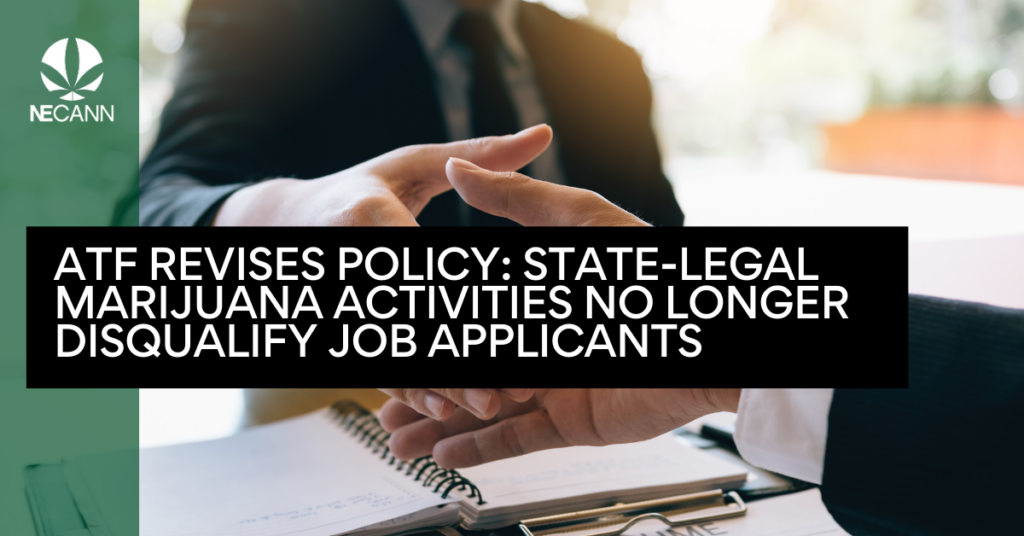The Bureau of Alcohol, Tobacco, Firearms and Explosives (ATF), a federal law enforcement agency operating under the Department of Justice, has recently implemented a significant update to its employment policy regarding applicants involved in marijuana-related activities. This policy revision introduces a clear distinction between individuals who have engaged in marijuana cultivation, manufacturing, or sales in compliance with state laws while serving in a “position of public responsibility” and those who have violated state cannabis policies. Notably, the ATF’s new approach diverges from the ongoing federal marijuana prohibition, signaling a shift in how state-legal marijuana activities within the cannabis industry are treated within the agency.
Under the revised employment policy, the ATF has included a specific subsection on “Marijuana/Cannabis” within its “Automatic Drug Disqualifiers” section. While recognizing that marijuana use, even for medical purposes or in states/localities where it is legalized, remains illegal under federal law, the policy specifies certain activities that are automatically disqualifying. These activities include the distribution, sale, or transportation of marijuana for profit, as well as cultivation or manufacturing without the necessary state/local legal authorization while holding a position of public responsibility. However, individuals involved in state-legal cannabis activities while serving in such positions will no longer face automatic disqualification, although their involvement may still be taken into account during the hiring process. Conversely, engaging in marijuana commerce without state or local authorization will continue to be grounds for rejection.
The ATF’s updated drug policy focuses on disqualifying activities but indicates a more nuanced approach to state-legal cannabis operations. It reflects the agency’s commitment to reviewing and adjusting policies to align with changing laws and societal perspectives. The policy change is significant given federal drug laws that supersede state laws, and it comes amid ongoing lawsuits challenging the federal ban on marijuana. The ATF enforces this policy through a question on gun purchase forms.
The ATF’s policy update aligns with changing employment policies in federal agencies due to state-level marijuana legalization. The OPM has proposed lenient treatment of past cannabis use, and the Biden administration authorized waivers for certain workers. Other agencies like the FBI, DOT, and EPA have also revised their drug policies to adapt to changing cannabis laws.




